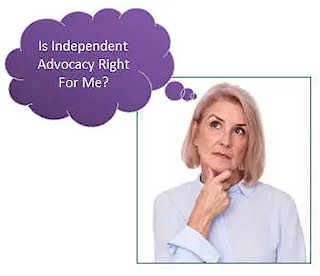Understatement warning! (Like a spoiler alert only it’s no spoiler!)
Burnout among medical professionals is huge right now. The COVID pandemic has caused exhausted healthcare professionals to suffer feelings of fear, frustration, anger, sadness, and the sense that each has lost control over his or her own life…
As a result, many people who work in medical environments are looking for an alternative to the craziness. The question becomes…
Is there something I can do for a living, a new profession I can choose, that allows me to take advantage of my health and medical education and experience while I continue to help patients, allows me to take back control of my life, and doesn’t put me or my family in harm’s way?
If you have pondered that thought, wondered about the possibilities, or actively sought a different path for yourself, then I have a great suggestion for you to consider…
…become an Independent Health or Patient Advocate
… which of course, begs a few questions:
- Why would a shift from being a medical professional to an independent advocate work well?
- What is involved in such a career change?
- Who would I work for – who would pay me to do the work?
- How much money can I make as an independent (private) advocate?
- …. etc… many questions!
Here are a few answers to get you started, then some resources if you’re interested in learning more:
First – what is independent advocacy?
It’s the recognition that so much of a patient’s journey from illness or injury to wellness is more than just medicine; it’s about finding the right resource at the right time. It’s the ability to help a patient get exactly what he needs when he needs it. And it is a steadfast allegiance to a patient instead of just accepting what the system is willing to dole out.
Independent advocates are paid directly by the patient him or herself, or a family member, or sometimes the patient’s employer, or someone else who has sole allegiance to the patient (like a church, synagogue, or union.) Independent advocates do not work for an employer who controls what can or can’t be done. Limits are imposed only by the patient; not insurers or administrators, or others who seem to be the deciders in too many cases.

Independent advocates perform some subset of more than 40 different services patients need that are not medical.
The reason this shift would work well for you if you have enjoyed a career in medicine but are looking for a change, is because it still allows you to help patients, but without restriction as to what you are allowed to do for them. You can do anything that is NOT medical (that restriction is ethical, and based on what advocacy insurance allows). But when you recognize something medical needs to be done, or decided, you can make sure they get to the right professional to do that.
Next – what is involved in this career change?
This may be the easiest question to answer, but the most complex to actually execute.
The answer is – you go into business for yourself, calling yourself an advocate. Easy right?
The complexities are the devils in the details. To go into business for yourself, you must be financially prepared to do so. You must learn to be a business owner who can manage your own legal needs, professional insurance needs, and marketing needs (by tapping into the best resources, of course). In fact, in your first couple of years, your ability to ramp up your business-owning capabilities will be a better predictor of your success than your ability to perform advocacy services.
Who would you work for? Who pays you to do the work?
As an independent advocate, you will be self-employed. You’ll either work directly for patients or their families (described in a bit more detail above), OR, you’ll work for other advocates who might hire you to work for their clients.
Examples: an older person is diagnosed with Parkinsons Disease. You might be hired to help him get a second opinion. He might hire you himself, or one of his adult children might hire you. Or, if you have a specific interest and capability in working with Parkinsons patients (called a “niche”) then another advocate might hire you to work with her client who was just diagnosed.
How much money does an independent health or patient advocate make?
There is no simple answer to this question because every advocate earns differently! But we can give you some guidelines, and send you to resources to help you hone in better on your own answer.
Hourly rates vary depending on experience, education, geographic location, types of services offered, licenses and certifications, and a few other details. Generally they range from $125 to $350 per hour.
Now – don’t go multiplying that amount by a 40 hour week, because rarely will you ever work a 40 hour week. Some weeks will be far less, and some will be far more. Some weeks all your work will be “non-billable” (because it might be admin work, or local travel, or just office work) and some weeks your work will be mostly billable. In general, as you get started in business, you’ll be doing less billable work and the more time passes with good advocacy work, the more billable hours you’ll achieve.
Have we whetted your appetite? Want to know more?

If you would like to learn more about how YOU can take back control of YOUR life, earn a good living, feel a great deal of satisfaction from your clients (that’s what we advocates call our patients), and keep you and your family safe, check out these resources:
- A general list of resources for learning more: https://HealthAdvocateResources.com
- A book that helps you decide if this is a good career for you: So You Want to Be a Patient Advocate? Choosing a Career in Health or Patient Advocacy
- From The Alliance of Professional Health Advocates: a podcast series that answers more thoroughly the questions above, and many others: Is Independent Advocacy Right for You?
Yes! There is much to consider. We hope you’ll take our suggestion seriously… Then jump into The Alliance of Professional Health Advocates where we’ll be pleased to hold your hand and walk you through the process of creating YOUR next career.
LEARN ABOUT APHA MEMBERSHIP | REASONS PATIENTS NEED ADVOCATES | MASTER LIST OF PRACTICE RESOURCES





